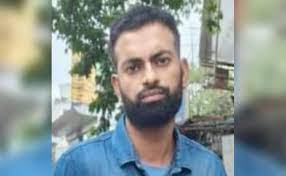Pune Module Case: 2 Others and a Suspected ISIS Terrorist Are Arrested by Delhi Police
One of the most sought-after criminals in the nation was apprehended on Monday by the Special Cell of the Delhi Police. He is believed to be an ISIS terrorist.
Md. Shahnwaz Shafiuzzama Alam has been named as the alleged terrorist, and the National Investigation Agency (NIA) has offered a reward of Rs. 3 lakh for information leading to his capture.
Mohammad Rizwan Ashraf and Mohammad Arshad Warsi, two further alleged ISIS militants, were also detained.
Shahnwaz is one of four people charged in the “Pune ISIS module case,” along with three others. He was detained in Delhi after leaving Jaitpur. Arshad and Ashraf were both detained in Uttar Pradesh, at Moradabad and Lucknow respectively.
In July, Shahnwaz was previously detained by the Pune police but was able to get away. Talha Liyakat Khan, Abdullah Faiyaz Shaikh, and Rizwan Abdul Haji Ali are the other three people sought in connection with the Pune ISIS module investigation.
Shahnwaz is an engineer by trade and is said to be familiar in making bombs. He was also found to have bomb-making supplies as he was being arrested.
According to PTI, the police said that they also found a handgun and ammunition in Shahnwaz at the time of the arrest, along with basic plastic tubes, iron pipes, various kinds of chemicals, timing devices, etc.
The PTI further said that Shahnwaz had found bomb-making manuals that were allegedly delivered by their handlers across the border.
Shahnwaz was a mining engineer, Arshad was a mechanical engineer who attended Aligarh University in Uttar Pradesh, and Ashraf was an Azamgarh University graduate in computer science engineering who had also had clerical training.
According to HGS Dhaliwal, special commissioner of the Delhi Police, the arrests took place since they were keeping a watch on “the Indian Mujahideen and IS kingpin.” The Indian Mujahideen (IM), a group with a terrorist designation, committed a number of devastating bombs around the nation in the 2000s. The Students Islamic Movement of India (SIMI), a different designated terrorist organization, was destroyed before it was founded. The Islamic State, usually referred to as ISIS, is the name of the international terrorist group.
Shahnawaz, the primary suspect, and his two other co-defendants were taken into custody this morning. According to India Today, Dhaliwal said that Mohammad Rizwan, another accused, was running away.
All three suspects were presented before a judge and were given a seven-day detention order.
They carried out reconnaissance in many locations throughout western and southern India. They had explosives canisters and pipes with them from the moment they went material shopping. They have the backing and promotion of ISIS members. They have a presence all throughout India, according to Dhaliwal.
The police further said, as reported by India Today, that the three accused terrorists planned to target very very important people (VVIPs).
The Islamic State, often known as ISIS, is a terrorist group with origins in the Middle East. ISIS ruled over substantial portions of Syria and Iraq for a long period of time. It is dedicated to bringing about the Caliphate, or Islamic Caliphate, which would rule the whole globe. The Caliphate was another name for the’state’ that it established in Iraq and Syria until being overthrown in 2019.
Although the actual Caliphate has been destroyed, ISIS still maintains affiliates throughout the globe that function as its branches and are used to carry out terrorist actions. In addition to these affiliates, the ISIS also has smaller modules for specific terrorist activities and conducts’remote-controlled’ assaults, in which handlers situated in the Middle East or elsewhere digitally radicalize and direct a person to carry out an attack in a distant location.
“The reestablishment of a universal Islamic caliphate and the promotion of violent strife between Muslims and non-Muslims are ISIS’s main aims…This doctrinal commitment allowed ISIS to gain control of territory in Afghanistan, Libya, and Nigeria as well as hold it in Iraq and Syria for more than three years since its official founding in June 2014. “ISIS adheres to a literalist interpretation of Sunni Islam, specifically embracing beliefs according to an extremist Salafi vision,” notes the think tank Counter Extremism Project (CEP).







